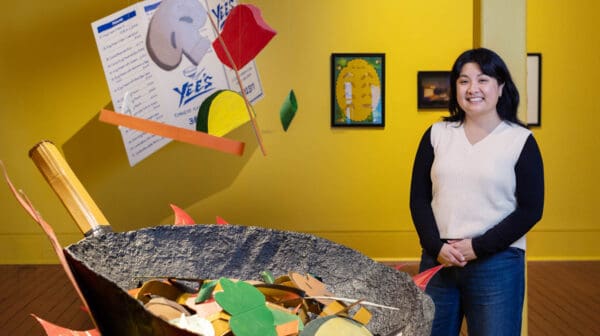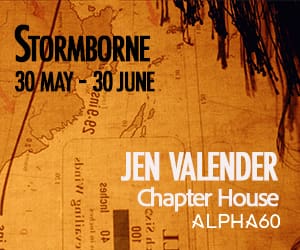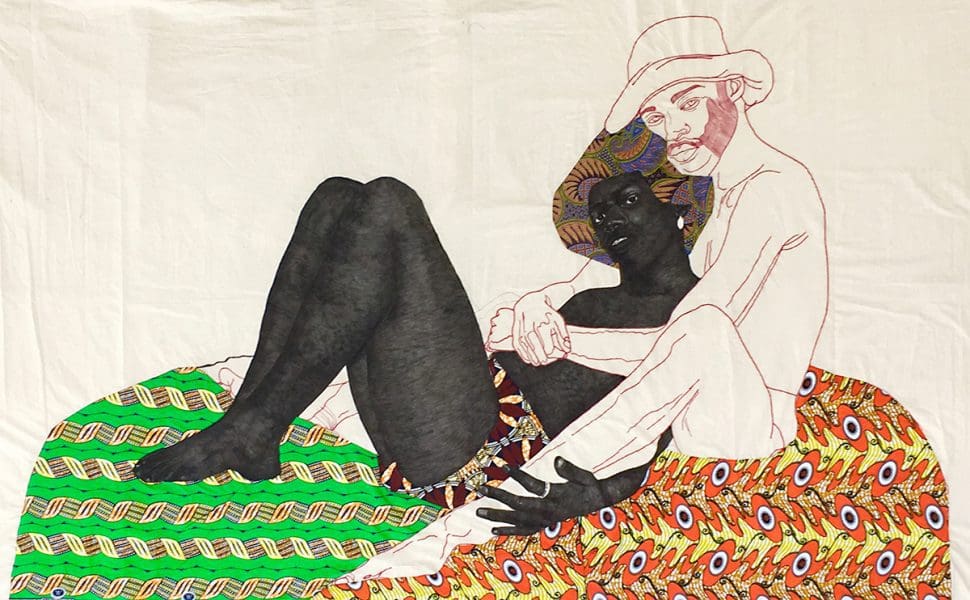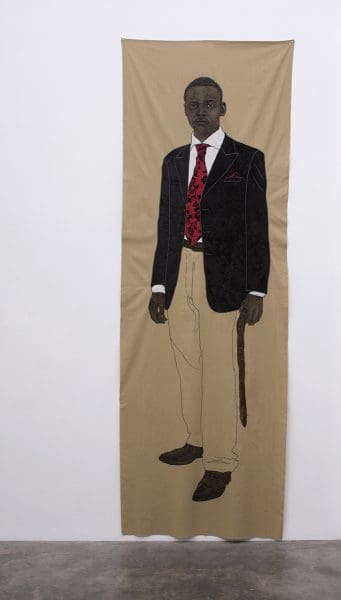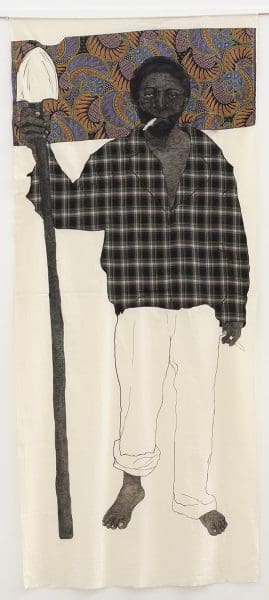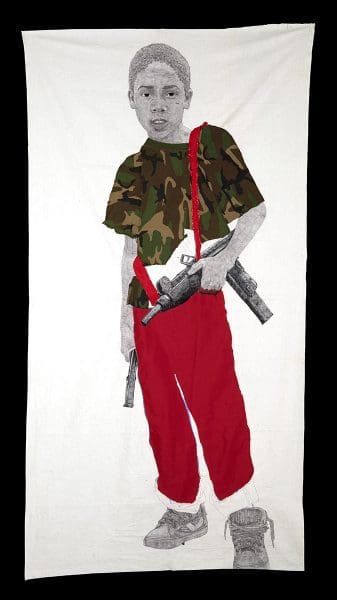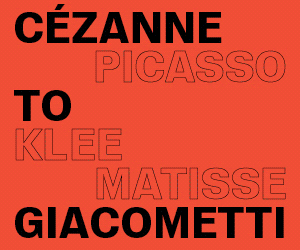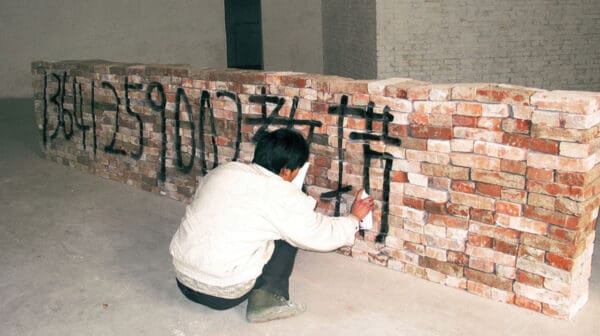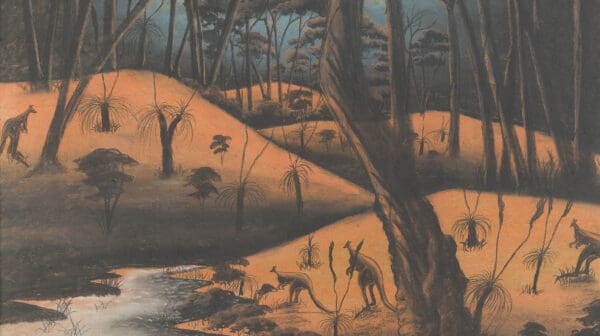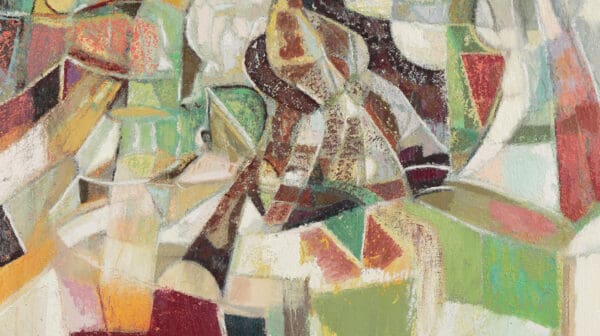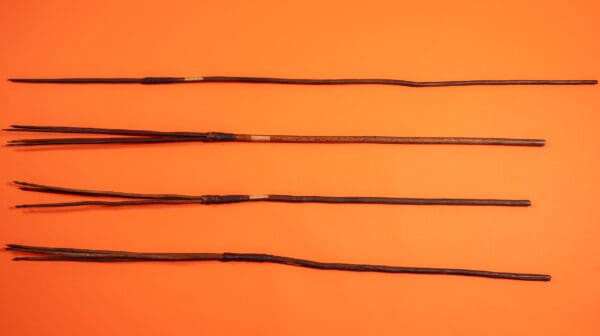Congolese born artist Pierre Mukeba has won the non-acquisitive $15,000 Churchie National Emerging Art Prize for his suite of figurative textile works.
Mukeba, who was granted asylum in Australia in 2006, creates works that bear witness to events in Africa. QUT curator Kevin Wilson describes his practice as “provocative textile figurative paintings with sharp imagery.” They are tinged with tales of violence, including portraits of child soldiers, victims of rape, and his father.
The works of the four winners, who were chosen from a pool of 30 finalists, touch on political concerns and personal experiences. This year the prize was judged by Aileen Burns and Johan Lundh, executive directors at the Institute of Modern Art (IMA). Wilson says, “If you look at their selections they are quite political. They did make a remark to me that we live in a world where there is massive political upheaval. It’s an interesting time, and it’s appropriate for this kind of work to be out there, and the judges were keen to make sure that it is recognised.”
With no professional art training, Mukeba speaks of the influence of his family. “My uncle back in Africa provided my first starting point with art,” says Mukeba. “As a kid I was fascinated with watching him sculpt wood, draw and paint.” Deciding to leave his accounting degree and pursue art making, his mother encouraged him to focus on personal experiences. “She said if you really want to do art why don’t you make work that teaches people about something, events that they don’t know are happening, and what is occurring in your life,” he recalls. “That’s when I started getting passionate about art and trying out different techniques.”
Unable to afford large canvases, Mukeba started drawing on his bed sheets.
Following on from this he now employs cotton cloth as a base onto which he draws with a brush pen, and collages pieces of fabric, to create immediate compositions.
Mukeba’s James 2:10, 2017, a work in the series of six that is exhibited as part of the Churchie, is a tender portrait of an interracial male couple in which the artist turns a critical eye on the beliefs of his culture and his personal Christian faith. He says, “Me and my mum have been having discussions about same sex love. In Africa, in the Congo, people are killed for being in a same sex relationship. The main point of that piece was to challenge me, my mum and our Christian religion.”
Indigenous artist Hayley Millar-Baker was awarded the $5,000 Special Commendation for her works that explore the dispossession of First Nations people, and Muslim Australian artist Abdul-Rahman Abdullah was awarded a $1,000 Sam Whitely Memorial Commendation for The boy who couldn’t sleep, a childhood imagining of a monster invented by the artist as a way to control his relationship with nightmares and terrors. Joy Ivill was also awarded a Sam Whiteley Memorial Commendation for her embroidered works, Dubuffet’s men, which explores her relationship with her absent father.
Works by all 30 finalists are on show in The Churchie National Emerging Art Prize Exhibition.
The Churchie National Emerging Art Prize Exhibition
QUT Art Museum
12 November – 17 December
